Questions Remain As Short Sales Become a Bigger Share of Home Sales in Phoenix
Short sales, once almost unknown, have become a significant part of the real estate jargon in Phoenix Az. Short sales remain one of the most misunderstood real estate transactions inspite of their increasing numbers. There are many aspects and implications a seller must understand reinforcing the need to seek competent legal and tax advice. First of all, let’s define an Arizona short sale. A short sale is when the lender/investor is willing to authorize the sale when the proceeds do not cover the outstanding loan amount. What are the issues to be considered by Phoenix valley homeowners regarding a short sale?
Why would a bank favor an Arizona short sale vs. a foreclosure?
![]()
![]()
![]() Would you believe it comes down to money? What a surprise! Short sales are optimally designed for homeowners who can no longer afford their payment and foreclosure is imminent. If the home goes into foreclosure, the lender is responsible for maintenance of the property, HOA dues, taxes, and property damage when the owner left. This is on top of the other administrative fees. Ed Haldeman, CEO of Freddie Mac, cited studies that banks lose more than $50,000 per foreclosed home or as much as 30-to-60% of the outstanding mortgage. A Phoenix Short Sale provides the opportunitiy to minimize the loss on a home that is on its way to foreclosure.
Would you believe it comes down to money? What a surprise! Short sales are optimally designed for homeowners who can no longer afford their payment and foreclosure is imminent. If the home goes into foreclosure, the lender is responsible for maintenance of the property, HOA dues, taxes, and property damage when the owner left. This is on top of the other administrative fees. Ed Haldeman, CEO of Freddie Mac, cited studies that banks lose more than $50,000 per foreclosed home or as much as 30-to-60% of the outstanding mortgage. A Phoenix Short Sale provides the opportunitiy to minimize the loss on a home that is on its way to foreclosure.
What are the legal issues associated with a short sale?
 As soon as you begin to research short sales in Arizona, you’ll very quickly stumble upon subjects such as Arizona anti-deficiency statutes and purchase money, both of which are critically important. This is one area where it is highly recommended that a homeowner consult a real estate attorney. Before we can tackle anti-deficiency, we have to understand purchase money. A purchase money mortgage would be a loan used exclusively to purchase the property. A home equity line of credit or loan is NOT considered to be purchase money. And there could be gray areas when it comes to refinancing of the original purchase money loan.
As soon as you begin to research short sales in Arizona, you’ll very quickly stumble upon subjects such as Arizona anti-deficiency statutes and purchase money, both of which are critically important. This is one area where it is highly recommended that a homeowner consult a real estate attorney. Before we can tackle anti-deficiency, we have to understand purchase money. A purchase money mortgage would be a loan used exclusively to purchase the property. A home equity line of credit or loan is NOT considered to be purchase money. And there could be gray areas when it comes to refinancing of the original purchase money loan.
When a homeowner pursues a short sale with loans that are exclusively purchase money , the negotiation is easier and banks are more agreeable to the short sale. Why? Because they know that the owner is legally protected from recourse if it goes to foreclosure assuming it is a “qualified property” under anti-deficiency statutes. When the loan is not purchase money, for example with a HELOC (Home Equity Line of Credit), it is common for the lender to require a settlement prior to releasing the lien on the property. Non-purchase money lien holders can and will continue to pursue the homeowner AFTER a foreclosure.
Now the fun stuff that you’ll see talked about in every Arizona short sale discussion, anti-deficiency statutes. A.R.S. §33-729(A) and A.R.S. §33-814(G) to be exact. These statutes prohibit lenders from attempting to collect deficiency judgements from the homeowner on certain residential loans in the case of a foreclosure. A qualifying property is two and a half acres or less, and being utilized as a single one-family or single two-family dwelling. Properties that do not fit these criteria; for example, raw land, commercial property, and residential property with more than 2 units are not protected. Suprising to some, homes purchased as rentals are covered by Arizona anti-deficiency statutes.
Therefore, the legal exposure of a property requires consideration of the type of loan; purchase money vs. non-purchase money, and meeting the Arizona anti-deficiency statutory definition of a “qualified property”. As mentioned previously, seeking legal advice from a real estate attorney is recommended. This is the reason it is hard to listen to the 6 o’clock news and understand the complexities of an Arizona short sale.
Are there tax consequences to an Arizona Short Sale?
The discussion regarding tax consequences of an Arizona short sale involves The Mortgage Forgiveness Debt Relief Act of 2007. This provision applies to debt forgiven during the calendar years of 2007 through 2012. The most common circumstances where forgiven debt is not taxable involve:
- Debt forgiven involving a principal residence.
- Non-recourse loan: A non-recourse loan is a loan for which the lender’s only remedy in case of default is to repossess the property being financed or used as collateral.
- If you are insolvent when your debt is cancelled.
Forgiven debt through either a short sale or foreclosure on a principal residence can be excluded if the balance of the loan was $2 million or less. Tax consequences of any Arizona short sale must be verified with an experienced tax advisor. The tax consequences of a property that is not a principal residence such as a rental become more problematic.
” and no deficiency judgement will be instituted.”
After weeks if not months of waiting, the long anticipated short sale approval letter will arrive. The bank approval letter will explain the terms of the short sale in the approval letter. The desired outcome is that the letter contains verbage releasing the homeowner from any future liability be included in the approval letter such as “no deficiency judgement will be instituted”. Some attorneys will debate whether this is implied or not according to Arizona law for qualified purchase money short sales, so the safest approach is to ensure the release of liability is stated in the approval letter.
Benefits of an Arizona short sale
Do short sales have any benefits? Yes.
- Under Fannie Mae guidelines a borrower can be eligible to purchase another home in two years instead of 5 – 7 years with a foreclosure.
- Prevents blight in the neighborhood because the owners walked away, leaving the house vacant for up to 6 months without any attention or maintenance.
- Minimizes the damage to the seller’s credit due to the manner it is reported to the credit bureaus versus a foreclosure. Much of the damage comes from the missed payments prior to the short sale or foreclosure. A short sale may be reported “Settled in full for amount less than owed”, “Paid as negotiated”, or something similar versus a foreclosure which will remain on a credit report for 10 years.
- Provides a way for those with a financial hardship to exit with dignity when a loan modification will only keep them in a home with a over-priced loan when compared to the current market value.
- A foreclosure may be viewed as a serious issue for current and future employers.
A short sale is one of the options for struggling homeowners in the Phoenix area including Gilbert, Chandler, Mesa, Tempe, Scottsdale, and Queen Creek. A good resource to consider is a workbook published by the Arizona Foreclosure Prevention Task Force at www.azforeclosureprevention.org. To find out if a short sale would be a beneficial option, click on free short sale consultation, Or call me directly at 480-326-8571.

